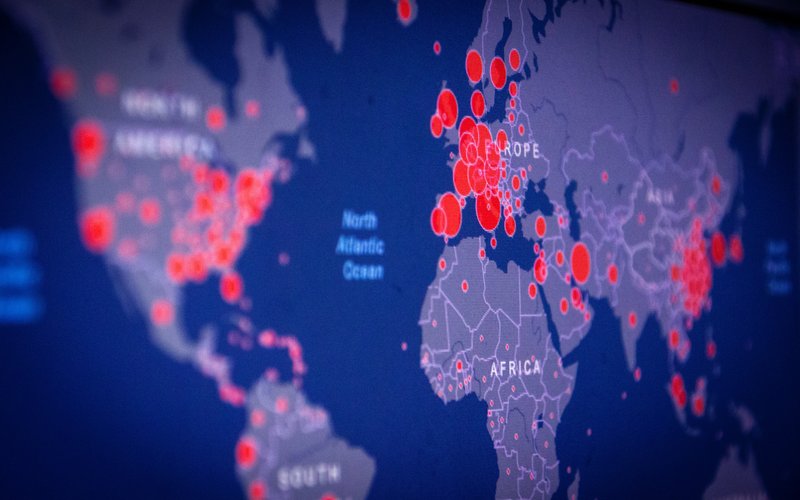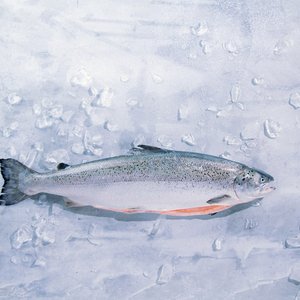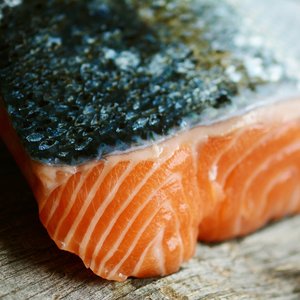The COVID-19 pandemic has triggered a public health crisis followed by an on-going economic crisis due to the measures taken by countries to contain the rate of infection. World trade is expected to fall by between 13%-32% in 2020 as the COVID-19 pandemic disrupts normal economic activity and life around the world, according to the World Trade Organization (WTO). The wide range of possibilities for the predicted decline is explained by the unprecedented nature of this health crisis and the uncertainty around its precise economic impact. But WTO economists believe the decline will likely exceed the trade slump brought on by the global financial crisis of 2008-09.
The effects on aquaculture vary. Farmers cannot sell their harvest and must keep large quantities of fish that need to be fed, increasing costs and risks. This means that hatcheries cannot trade their seeds and would mean a decline in production. In India, nearly 500 hatcheries had to drain seed ponds due to strict initial lockdown measures. Now, India has added new exemptions to lockdown restrictions to contain the spread of COVID-19. The addendum exempts operations of the marine fishing and aquaculture industry including feeding and maintenance, harvesting, processing, packaging, cold chain, sale and marketing, hatcheries, feed mills, commercial aquaria, movement of fish and shrimp, fish seed and feed and workers for all these activities.
The European Feed Manufacturer’s Federation (FEFAC) welcomed the fast crisis response coordinated by the EU Commission through its Green Lanes agreement and highlighted the critical importance of maintaining global trade in food and feedstuffs. “We strongly urge the European Commission and competent national authorities in Europe and in export countries to continue developing and implementing a harmonized COVID-19 guidance for the workforce of food and feed chain operators, as well as trading companies. This approach should secure the proper flow of goods and functioning of the internal market, but also imports of agricultural raw materials and ingredients,” FEFAC said.
Farmers are starting to share the negative impact of the pandemic in their results. Stolt Sea Farm reported a first-quarter revenue of $25.8 million, compared with $26.6 million in the fourth quarter in 2019. Revenue from turbot sales was essentially unchanged, as prices edged slightly higher, while volume sold declined marginally. Sole revenue decreased by 29.5%, as volume sold declined by 32.0% due to lower production, while prices rose by 2.2%. “Stolt Sea Farm was quickly impacted by the pandemic, due to widespread shutdowns of restaurants and hotels in the company’s main markets in Spain and Italy, resulting in a significant write-off of biomass inventory value,” the company said.
COVID-19 has hit the Greek seabass and seabream farming industry hard. Sales have decreased by 40% since the COVID-19 outbreak, while companies more heavily exposed to the foodservice industry report declines by 60% to 90%. Lack of liquidity is becoming more and more intense, due to sales reduction and requests for extension of payments from wholesalers and retailers.
The pandemic is also affecting new investments. Akva group cancelled two salmon RAS projects in China and Chile and Grieg Seafood also delayed some of its investments.
A proposal to help tackle the negative impact of the COVID-19 outbreak on the fishery and aquaculture sector was agreed this week by the European Council. The proposal will amend the regulation on the European maritime and fisheries fund (EMFF) and the regulation on the common market organization (CMO). Some of the measures included are support in relation to the temporary suspension or reduction of aquaculture production adding the amendment, granting working capital and compensating the reduction of sales and additional storage costs for aquaculture farmers, to the proposal.
The Scottish government will also provide financial support, up to GBP 27,000, for around 100 aquaculture business that make a full time living from shellfish and trout farming.













